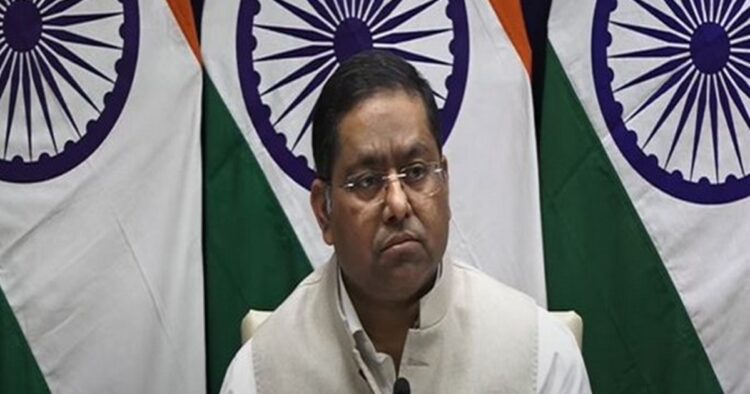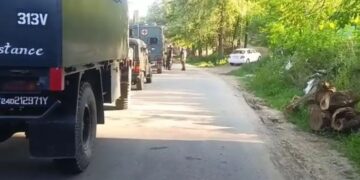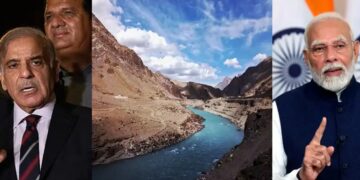In a recent media briefing, Randhir Jaiswal, spokesperson for Bharat’s Ministry of External Affairs (MEA), reiterated Bharat’s stance on the region of Jammu and Kashmir, including Ladakh. Jaiswal emphasized that the entire region is an integral part of Bharat and expressed strong opposition to the China-Pakistan Economic Corridor (CPEC), which he claimed violates India’s territorial integrity and sovereignty.
Bharat’s Consistent Position on Jammu and Kashmir
Jaiswal stated, “On PoK, we are very consistent in our position. We want to tell you, the whole of Jammu and Kashmir and Ladakh, the union territories, they are part of India, an integral part of India. They were an integral part of India. They are an integral part of India and they will remain an integral part of India.” This reaffirmation comes amidst reports of increased cooperation between Pakistan and China, particularly concerning the CPEC project.
#WATCH | Delhi: On PoK, MEA spokesperson Randhir Jaiswal says, "On PoK, we are very consistent in our position. The whole of Jammu and Kashmir and Ladakh, the union territories, are part of India, an integral part of India. They were an integral part of India. They are an… pic.twitter.com/bfNM3huYCj
— ANI (@ANI) May 30, 2024
Regarding the CPEC, Jaiswal was clear in Bharat’s disapproval. He stated, “Our position on CPEC also is well known to you. We are not in favour of it. We are against it. It goes against our territorial integrity and sovereignty.”
The CPEC is a significant infrastructure project that involves collaboration between Pakistan and China, passing through the disputed region of Gilgit-Baltistan, which India claims as part of its territory.
Pakistan-China Cooperation on CPEC
Recently, Pakistan and China agreed to advance their joint CPEC project. During a joint press conference, Pakistan’s Deputy Prime Minister Ishaq Dar and Chinese Foreign Minister Wang Yi expressed satisfaction with the progress of CPEC.
They vowed to “further upgrade and expand this cooperation,” highlighting various projects under CPEC, such as the Main Line-1 railway line project, Gwadar Port development, and the realignment of Phase 2 of the Karakorum Highway. They also mentioned strengthening cooperation in sectors like energy, agriculture, mining, and information technology.
CPEC is a $50 billion project that is a part of China’s larger Belt and Road Initiative (BRI). The 3,000 km network aims to connect Pakistan’s Gwadar and Karachi ports to China’s Xinjiang region by land, facilitating trade and economic integration between the two countries.
Human Rights Concerns in Balochistan
The CPEC project has faced criticism, particularly concerning human rights issues in Pakistan’s Balochistan province. Baloch political activist Munir Mengal addressed the United Nations Human Rights Council, highlighting the escalating human rights violations since the CPEC project began.
Mengal stated, “The situation in Balochistan, Pakistan demands immediate attention due to the systematic abuse of human rights and the disregard for the basic freedoms and liberties of its people.”
He further explained that the Baloch people view CPEC as an effort to displace them, exploit their resources, and suppress their voices. Reports have indicated mass displacement, enforced disappearances, and military operations targeting the Baloch population as significant concerns since the project’s initiation.
Bharat remains firm in its claim over the entire Jammu and Kashmir region and opposes the CPEC project due to territorial concerns. Meanwhile, Pakistan and China continue to deepen their cooperation on CPEC, despite human rights concerns raised by activists in affected areas like Balochistan.

















Comments